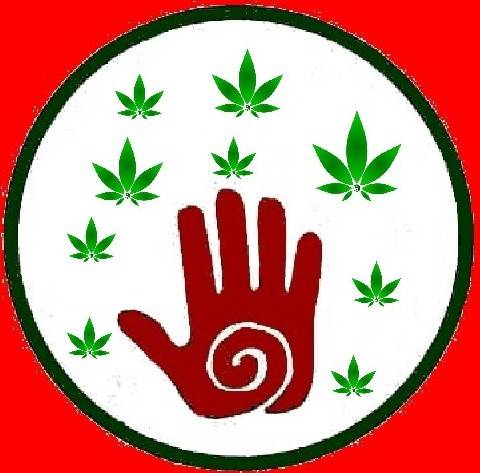E
elmanito
"REPRESSION DOES NOT WORK"
(Carel Edwards, Head of the Drugs Coordination Unit of the European Commission, the highest placed civil servant of the European Union concerning drug policies)
Brussels, 23 February 2010
Current drug policies in the European Union have done more harm than good. That is the conclusion of a Public Hearing on EU’s Drug Policy that took place in the European Parliament in Brussels on Tuesday 23 February.
Carel Edwards, head of the Drugs Coordination Unit of the European Commission told the hearing that "we know that repression does not work. Europe is slowly on the way to more liberal drug policies."
The purpose of the hearing in the European Parliament was to discuss the so-called Reuter Trautmann report, which concludes that the anti-drug strategy of EU countries has failed in many ways.
The Reuter Trautmann report is the result of a research on the impact of drug policies on the global drugs market in the past ten years. It was elaborated by the US think tank RAND Corporation and tjhe Dutch Trimbos Institute, upon the request of the European Commission.
According to the report there has not been any significant impact on the supply and demand of illegal drugs between 1998 and 2007. On the contrary, the price for the repressive policies has been an uncontrolled illegal market, drug-related criminality and the spread of diseases like hiv/aids. The public expenditure on drug policies in the EU is estimated at 40 billion euro/year, or 80 euro per EU citizen.
The European Commission was criticized by the NGO platform European Coalition for Just and Effective Drug Policies (Encod) that had organised the hearing together with the Greek MEP Michail Tremopolous (GREENS).
– "Civil society organisations have been warning EU authorities for years that drug policies were ineffective and counterproductive, but national and EU authorities ignored these messages"said Joep Oomen from Encod. "Local authorities and affected citizens have a pragmatic and forward thinking approach to drugs. Europe should benefit from these experiences."
A majority of the 40 delegates to the hearing expressed their support for an acceptance - oriented drug policy in the EU, including a legal framework for the prodeuction, distribution and consumption of drugs.
With the exception of five people, all participants accepted the final conclusion that restrictive drug policies have done more harm than good. "To continue these policies would be a form of criminal negligence. The European Union has the knowledge that prohibition doesn’t work. Now it should act upon that knowledge", says Joep Oomen.
The hearing resulted in several recommendations to the EU institutions. Among others, it calls for the organisation of a EU Summit to discuss innovative drug strategies not based on prohibition, with delegations of national and local authorities, parliamentarians and civil society organisations. It also calls on the EU to strengthen the ’harm reduction"-approach, to allow citizens to grow cannabis for their personal use and in general to promote drug policies that respect human rights, individual freedoms and social cohesion.
The conclusions of the hearing will be presented on the meeting of the UN Commission on Narcotic Drugs in Vienna of 8 - 12 March.
Encod
Namaste



(Carel Edwards, Head of the Drugs Coordination Unit of the European Commission, the highest placed civil servant of the European Union concerning drug policies)
Brussels, 23 February 2010
Current drug policies in the European Union have done more harm than good. That is the conclusion of a Public Hearing on EU’s Drug Policy that took place in the European Parliament in Brussels on Tuesday 23 February.
Carel Edwards, head of the Drugs Coordination Unit of the European Commission told the hearing that "we know that repression does not work. Europe is slowly on the way to more liberal drug policies."
The purpose of the hearing in the European Parliament was to discuss the so-called Reuter Trautmann report, which concludes that the anti-drug strategy of EU countries has failed in many ways.
The Reuter Trautmann report is the result of a research on the impact of drug policies on the global drugs market in the past ten years. It was elaborated by the US think tank RAND Corporation and tjhe Dutch Trimbos Institute, upon the request of the European Commission.
According to the report there has not been any significant impact on the supply and demand of illegal drugs between 1998 and 2007. On the contrary, the price for the repressive policies has been an uncontrolled illegal market, drug-related criminality and the spread of diseases like hiv/aids. The public expenditure on drug policies in the EU is estimated at 40 billion euro/year, or 80 euro per EU citizen.
The European Commission was criticized by the NGO platform European Coalition for Just and Effective Drug Policies (Encod) that had organised the hearing together with the Greek MEP Michail Tremopolous (GREENS).
– "Civil society organisations have been warning EU authorities for years that drug policies were ineffective and counterproductive, but national and EU authorities ignored these messages"said Joep Oomen from Encod. "Local authorities and affected citizens have a pragmatic and forward thinking approach to drugs. Europe should benefit from these experiences."
A majority of the 40 delegates to the hearing expressed their support for an acceptance - oriented drug policy in the EU, including a legal framework for the prodeuction, distribution and consumption of drugs.
With the exception of five people, all participants accepted the final conclusion that restrictive drug policies have done more harm than good. "To continue these policies would be a form of criminal negligence. The European Union has the knowledge that prohibition doesn’t work. Now it should act upon that knowledge", says Joep Oomen.
The hearing resulted in several recommendations to the EU institutions. Among others, it calls for the organisation of a EU Summit to discuss innovative drug strategies not based on prohibition, with delegations of national and local authorities, parliamentarians and civil society organisations. It also calls on the EU to strengthen the ’harm reduction"-approach, to allow citizens to grow cannabis for their personal use and in general to promote drug policies that respect human rights, individual freedoms and social cohesion.
The conclusions of the hearing will be presented on the meeting of the UN Commission on Narcotic Drugs in Vienna of 8 - 12 March.
Encod
Namaste







